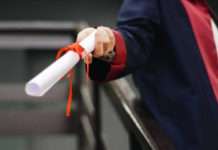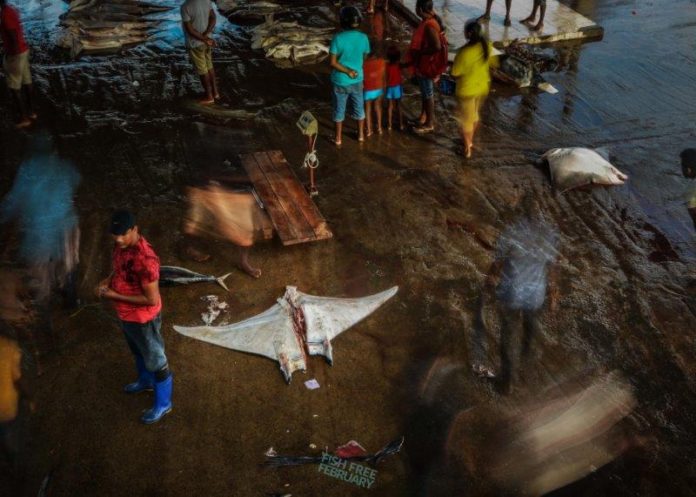There are no longer plenty more fish in the sea! Fish Free February challenges you to help protect our oceans by removing seafood from your diet for 28 days and helping to raise awareness of the issues caused by intensive fishing practices. Many South Africans took the pledge this year, the first time since the conservation initiative was created in the UK.
Our oceans are in a state of global crisis, brought about by ocean warming, acidification, pollution, and habitat destruction. However, the biggest immediate threat to ocean life is from fisheries. Each year an estimated 1-2.7 trillion fish are caught for human consumption, though this figure does not include illegal fisheries, discarded fish, fish caught to be used as bait, or fish killed by not caught, so the real number is far higher. It is no wonder then, that today nearly 90% of the world’s marine stocks are fully exploited, overexploited or depleted. If we do not act fast, overfishing and damaging fishing practices will soon destroy the ocean ecosystems which produce 80% of the oxygen in our atmosphere and provide three billion people with their primary source of protein.
Fish Free February, a UK-registered charity, challenged people around the world to take action for marine life in a simple but effective way. This year, South Africans across the country took the Fish Free February Pledge and dropped seafood from their diet for one month. Fish Free February wants to get people talking about the wide range of issues associated with industrial fishing practices and putting the wellbeing of our oceans at the forefront of dietary decision-making.
“Not all fishing practices are bad” _explains Simon Hilbourne, founder of Fish Free February. “Well-managed, small-scale fisheries that use selective fishing gears can be sustainable. However, most of the seafood in our diet comes from industrial fisheries which often prioritise profit over the wellbeing of our planet, resulting in multiple environmental challenges. In some cases, the fishing industry has even been linked to serious human rights issues such as forced labour and human trafficking! Fish Free February hopes to shed more light on fishing practices, create wider discussion around these issues, and offer solutions to benefit people, wildlife, and the natural environment.” _
Sharks and rays have been especially impacted by the use of destructive fishing methods, and after being on Earth for more than 400 million years, are now all threatened with extinction due to humans. South Africa is one of the top shark destinations in the world, and the shark diving has brought in millions of tourist dollars both locally and internationally. Whole communities based around this tourism have been developed around this shark diving including Gansbaai, Umkomaas/Aliwal Shoal, and Protea Banks/Shelly Beach. However, in South Africa, we face additional threats to sharks that are further decimating the populations of tiger sharks, blacktip sharks, bull sharks, and more. This includes the use of drone fishing for sport fishing of sharks and rays, and the KZN shark nets.
Drone fishing is a relatively new style of fishing in which a fisherman can attach line to a drone and use the camera on the drone to locate, target, and then drop line on anything they are looking for, and this includes sharks. Dive instructor Michael Snodgrass has been diving Aliwal Shoal nearly everyday for three years. He has observed specific hook/cable from drone fishing on the sharks allowing him to know that the individuals have been directly impacted from drone fishing. “Since drone fishing has become more popular, I have noticed an increase if 2mm thick and 1.2-1.5 steel trace attached to much more sharks while diving on Aliwal shoal” explains Michael, “After a bit of research, I found that that is in fact the preferred line to use when drone fishing for sharks. To see this almost everyday breaks my heart.” Michael and most of the divers in the area have observed an increased amount of blacktip sharks entangled by fish hooks and fishing line during shark diving.
“Technology is incredibly advanced these days. It should be utilsed to help preserve endangered species, not further impact them. Though sport fishing of sharks and rays is supposed to be catch and release, the use of drone fishing involves dragging the shark for several kilometers, and the shark does not stand a chance of surviving after being released.” Says michelle carpenter, local phd researcher based in umkomaas. “this unneccesary style of fishing will continue to decimate local shark populations, on which the entire KZN tourism community is dependent on”
Make sure to participate in Fish Free February, and if and when you start to eat seafood again make sure you know where your fish is coming from. Do not purchase from fishermen who use drones, gill nets, trawling, seine nets, or longlines. Choose to eat sustainably and buy your seafood from those who use hook and line, or take up spearfishing and collect your own.
To learn more about these issues and to take the Fish Free February pledge visit www.fishfreefebruary.com
Notes to editors:
Fish Free February is a UK Registered Charity (Charity Number 1191886)
People can pledge their support to go Fish Free this February through the website (www.fishfreefebruary.com/pledge).
Website: www.fishfreefebruary.com
Digital Campaign Toolkit: www.fishfreefebruary.com/digital-campaign-toolkit
Email: [email protected]












